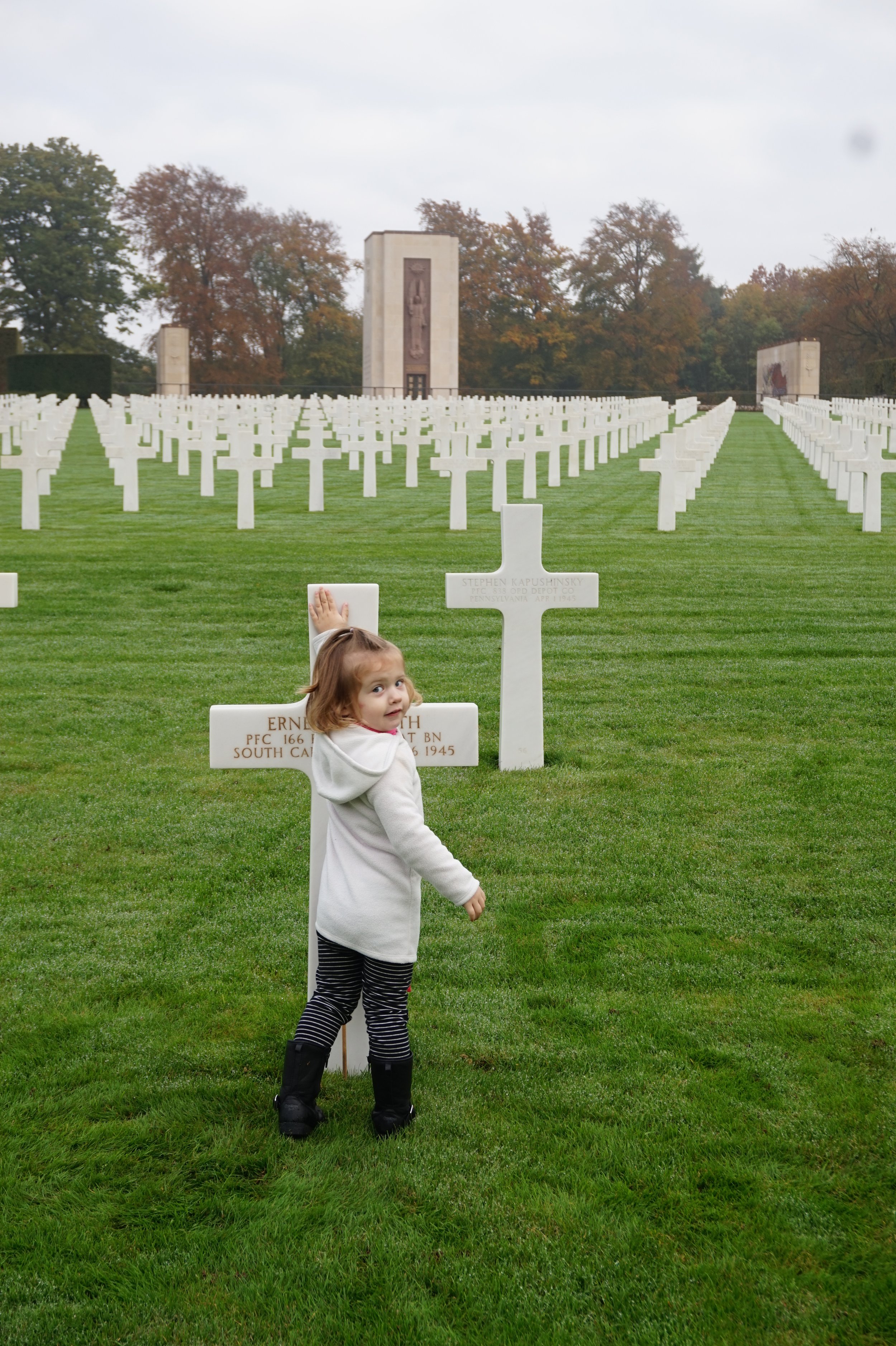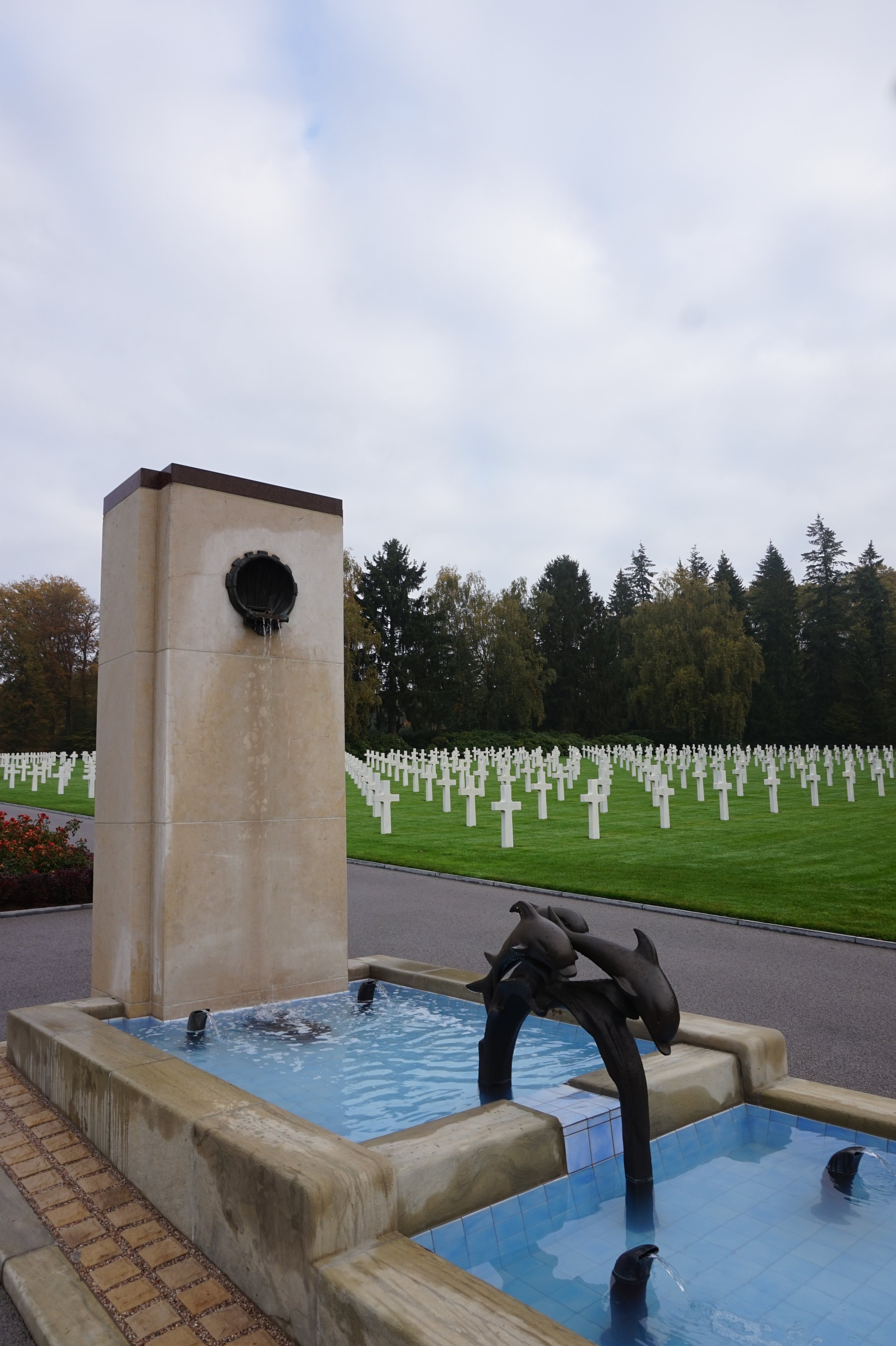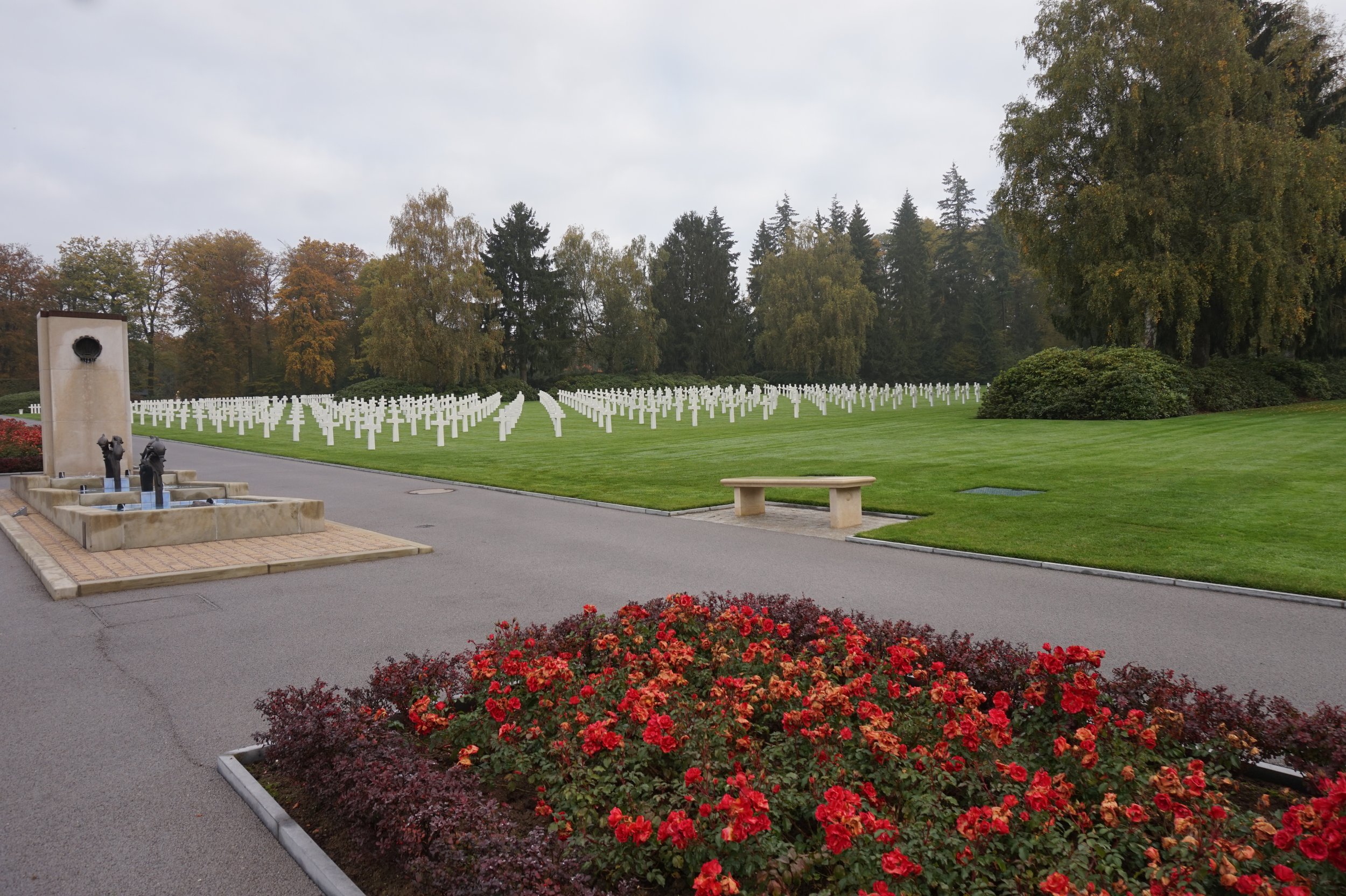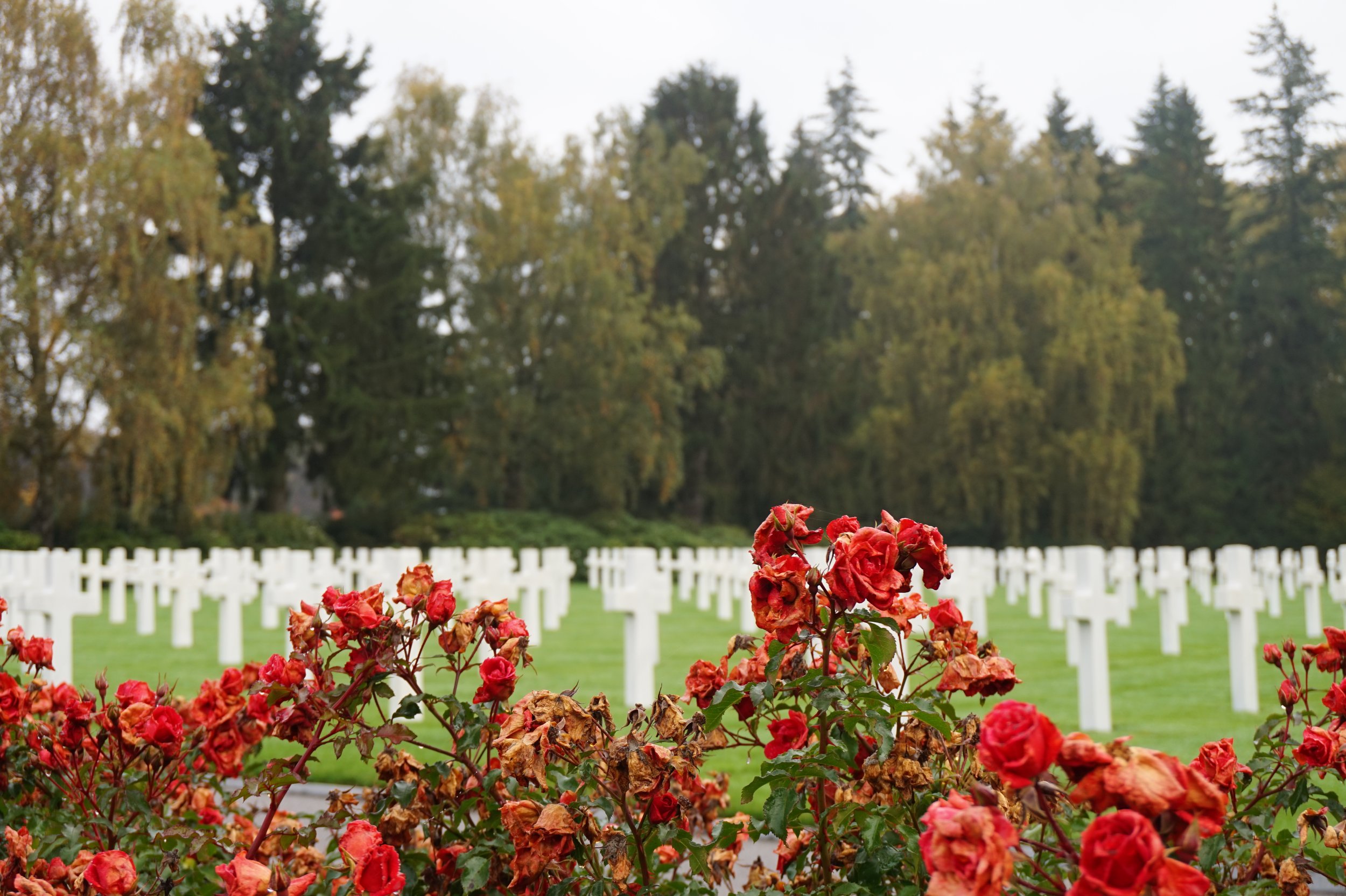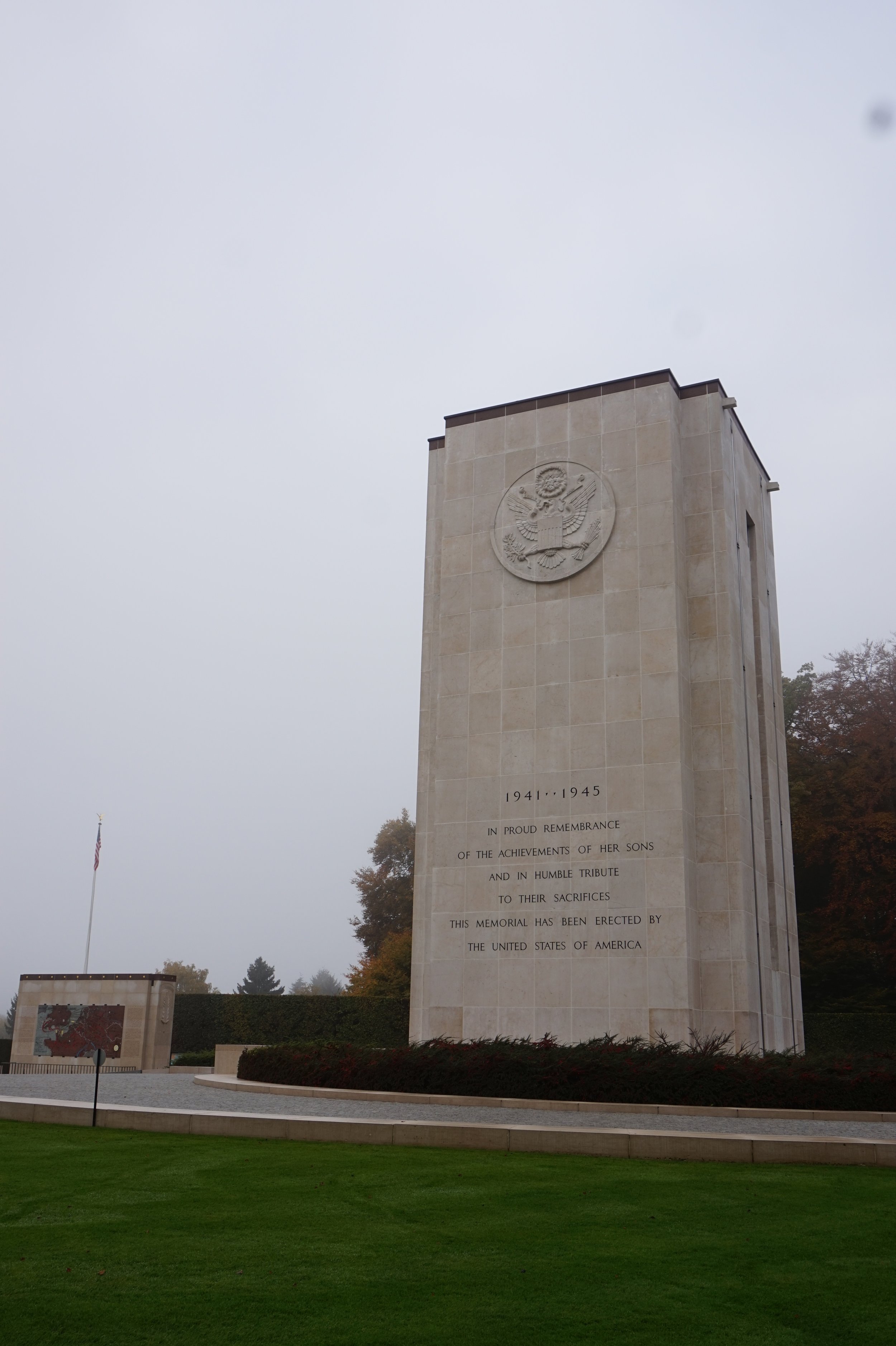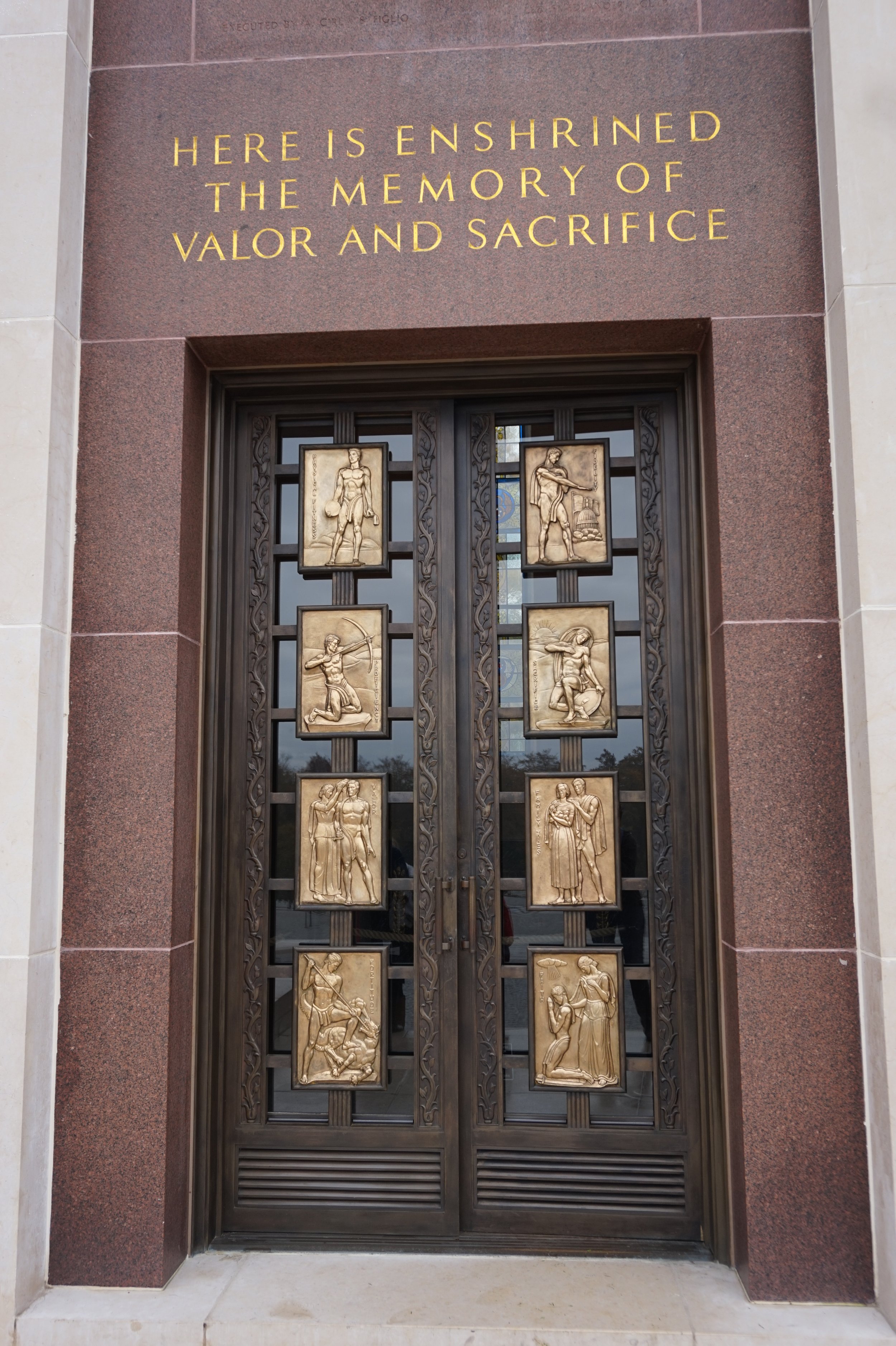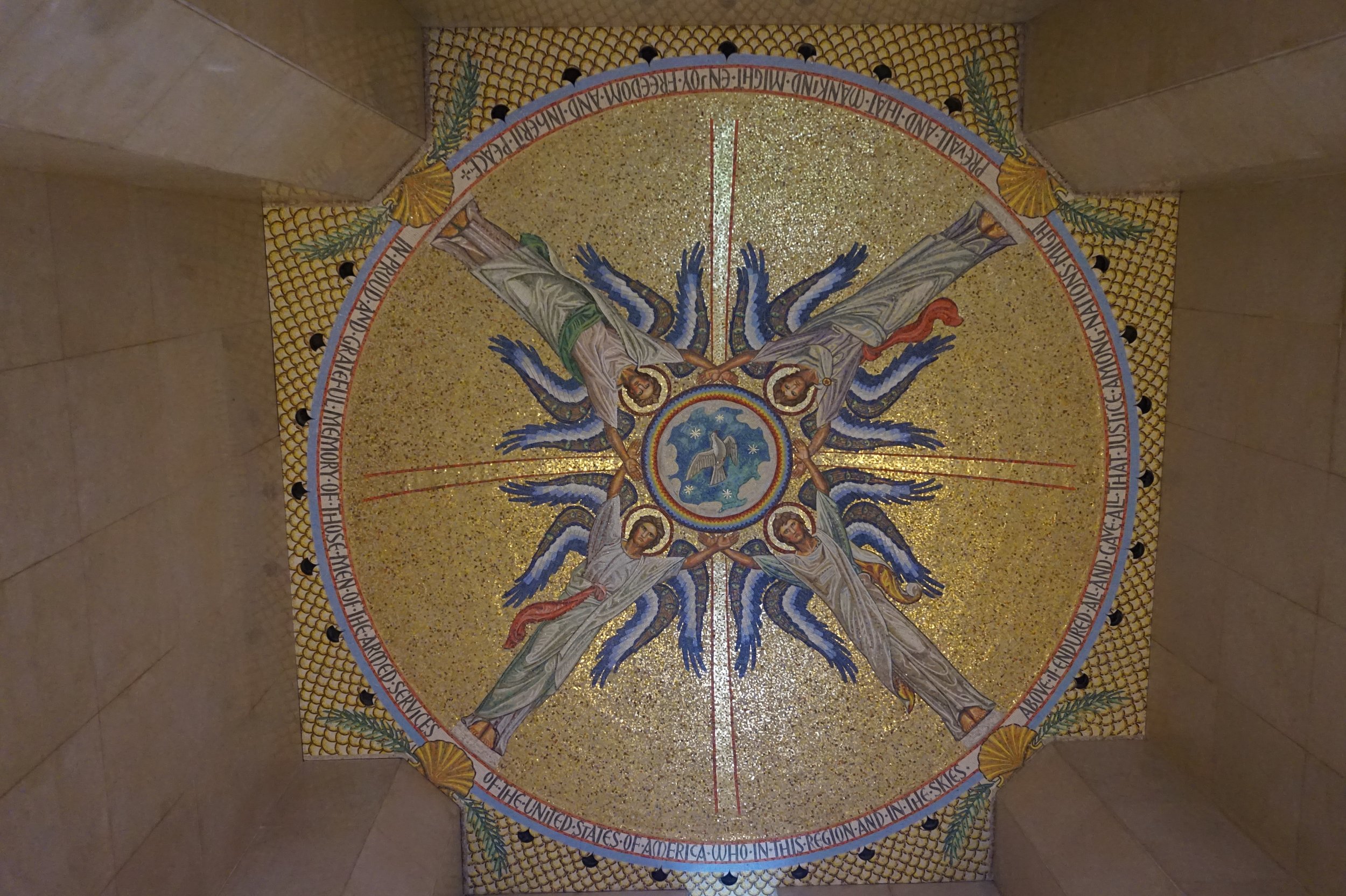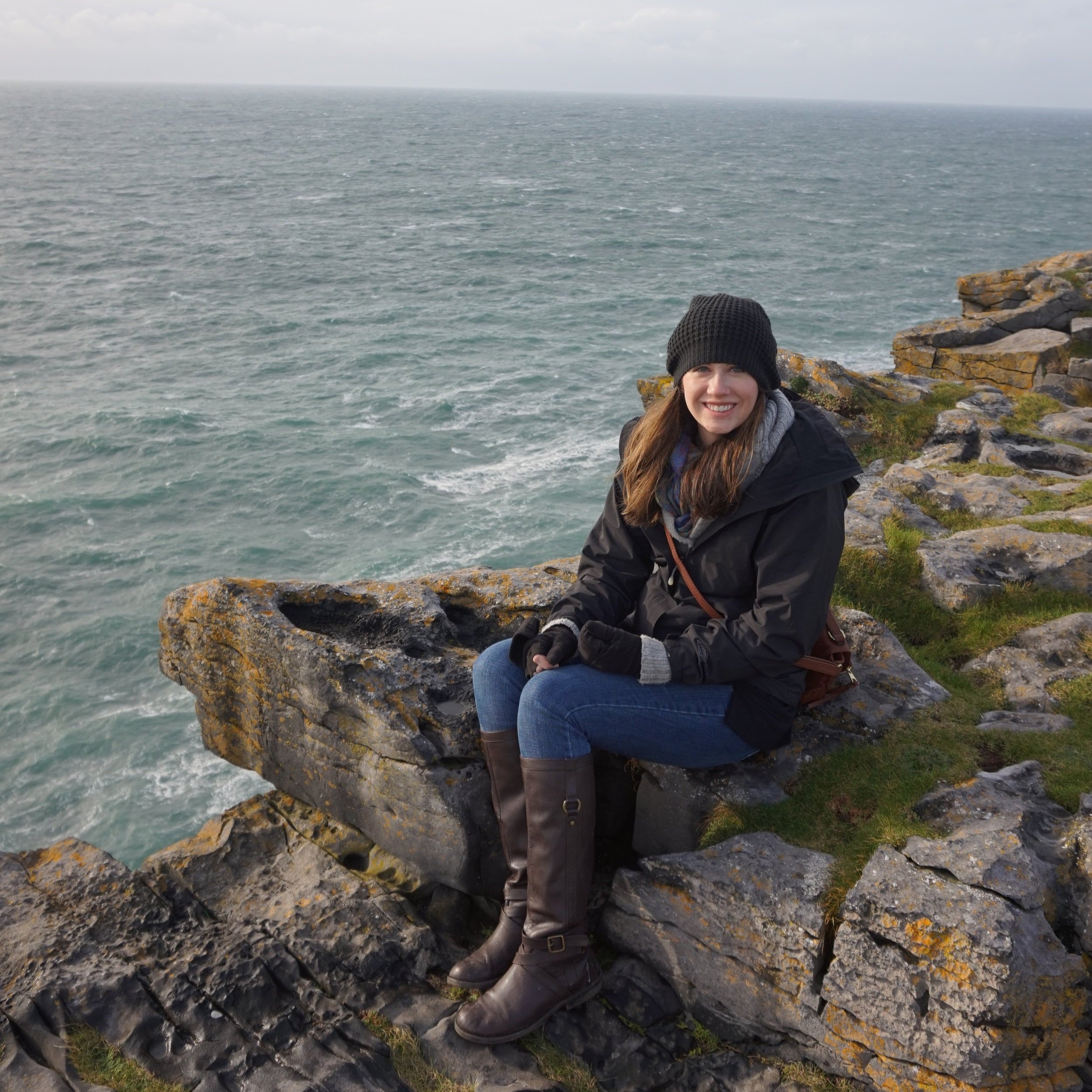Paying Our Respects at the Luxembourg American Cemetery and Memorial
The Luxembourg American Cemetery and Memorial is a sobering reminder of the total sacrifice that many gave during the Battle of the Bulge.
The small country of Luxembourg lost around 25% of their population in the conflict, and the scars of World War II still can be found all over Europe.
The Luxembourg American Cemetery is located 13 minutes (7.9 kilometers or 4.9 miles) outside of Luxembourg’s city centre, making it an easy add-on to your Luxembourg visit.
Let’s explore the importance of this cemetery, my family’s link to this place, and why you might want to visit, too.
This post contains affiliates. If you purchase through the links, I will receive a commission at no charge to you.
Updated 8/2022 | Written 12/2015
Why the Luxembourg American Cemetery is Important
This 50.5 acre property is the final resting place of 5,070 people, including General George Patton. Of those 50.5 acres, around 17 are devoted to the gravestones.
Patton was a key figure in the leadership of the European theatre of World War II, and died from complications after a terrible car accident in 1945.
By the time that Patton was laid to rest here in late 1945, the Luxembourg American Cemetery had already been in active use for a year.
The cemetery also has memorials for the 371 people who were missing in action during the Battle of the Bulge.
The property is a wonderful resource for anyone learning more about World War II sites in Luxembourg, the Battle of the Bulge, or the Allied Forces.
If you’re a visitor to a specific grave or a veteran, contact them ahead of time to arrange a time when a site employee can walk you around the property.
>> Take a tour of Luxembourg WWII sites, including the Luxembourg American Cemetery. <<
My Family’s Link to the Luxembourg American Cemetery
I don't know when I first heard about my grandmother's brother.
I had to be very young because I remember always knowing that my great-uncle Ernest had died in World War II.
I'd done a little research and discovered that my great-uncle Ernest had been a member of the 166th Engineer Battalion.
He'd enlisted in mid-1943, been a part of the Utah Beach invasion (one of five areas that were part of the D-Day offensive), and had helped construct bridges and roads with Patton's army between Normandy, France, and Luxembourg City.
He'd been killed after stepping on one of the U.S.’s land mines placed near the Moselle River outside of Trier, Germany.
My great-uncle Ernest had fought for months in the Battle of the Bulge and walked nearly to Germany from the coast of France, only to die just 2 months before VE-Day.
On rare occasions, my grandmother would take out his Purple Heart (which was normally kept in its box in the dining room sideboard) and let us see it.
Even decades later, it was obvious to me that Ernest's death had greatly affected my grandma. After he'd been killed, he'd been buried in Luxembourg.
We weren't sure why my great-grandfather had chosen to leave his son's body there as it would've been free to have it shipped home.
At some point, the idea of going to the Luxembourg American Cemetery began to be bandied about between my grandmother, my grandfather, and my mom.
My grandfather was actually very close to my great-uncle Ernest--it was because of their friendship that my grandparents actually met.
I imagine that my grandfather, who was a World War II Pacific theatre veteran, would have liked visiting his old friend one last time.
My grandparents were going to Germany and Luxembourg to see the grave back in 2001--but, just days before they left, 9/11 happened.
They got scared, canceled the trip, and never planned another.
My grandfather passed away in late 2013 without ever going on that journey.
A few years after her husband’s death, my grandmother began talking about finally going to see Ernest's grave.
She wanted us to come with her, and our preliminary plans began to take shape.
As we firmed up our itinerary, it became obvious that my grandmother wouldn't be able to keep up.
At the time, she was in great health, but she has trouble walking long distances.
She decided she wasn't going, but she encouraged the rest of us to keep planning the trip in her absence.
When my mom, dad, sister, daughter, and I climbed aboard a plane to begin our journey towards finally seeing my great-uncle Ernest's final resting place, it felt like the ending to a story that had taken over 70 years to tell.
On a foggy fall morning, we entered the golden gates of the American Cemetery to finally pay our respects to my great-uncle.
What to Expect on Your Visit to the Luxembourg American Cemetery and Memorial
The superintendent of the site greeted us and took us around the cemetery, sharing details about the construction of the cemetery, the fighting in and around Luxembourg, and current operations.
As the superintendent led us towards Ernest's grave, I was sobered by the thousands of white headstones stretching out on the green grass.
All of these men (and 1 woman) died thousands of miles from home away from the people they loved.
When we arrived at Ernest's headstone, I couldn't believe that we'd actually made it.
I'd heard about this moment my entire life, and we were there, fulfilling a goal that my grandparents had wanted for decades.
We paid our respects and stood quietly at his grave for several moments.
I was moved to be there in this place with my great-uncle, a place that is so far from his hometown of Florence, South Carolina.
We also took the time to look at the rest of the cemetery, which is immaculate. A team of soldiers comes to clean all 5,076 headstones each week.
The grass is kept trimmed and free of weeds.
It's wonderful to know that, if these people couldn't be buried in their hometowns, they're still taken care of--even 70 years after the war ended.
If you visit, take time to visit the memorial, which has a beautiful mosaic ceiling that took an Italian craftsman 18 months to construct.
Ultimately, this is what travel is all about to me: finding those moments where emotion, personal interest, and history intersect.
I feel incredibly privileged to have been given the opportunity to travel to Luxembourg and experience that moment with my family.






